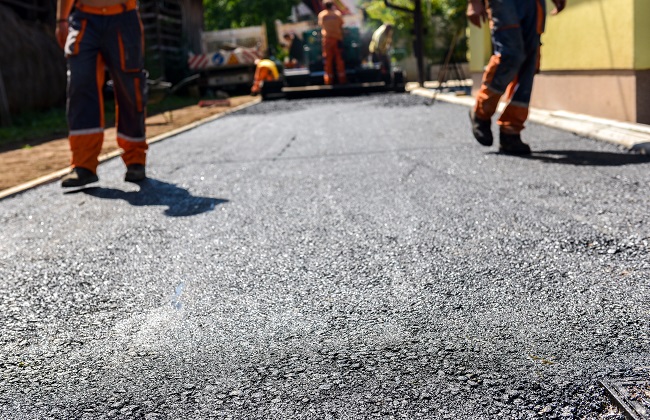A properly constructed and well maintained paved area can last over twenty years. Sometimes though, certain asphalt surfaces have an unusually short life span. Understanding the reasons why asphalt prematurely fails is essential to keeping your lot or driveway functional and great looking for many years. Here are some reasons why some asphalt has a short life span:

- Water: Unsealed asphalt is a porous material. If you look at it closely, you may notice that, rather than a solid mass, it is more like a very hard sponge. In places that see lots of rain, asphalt takes a beating. Water will seep through the asphalt and loosen the substructure under the paved surface. Worse yet, in early winter and spring, water that has soaked into the asphalt may freeze overnight, and we all know that freezing water tends to break things. Freezing water generates intense pressure that can crack the asphalt, and these cracks will eventually need to be repaired.
- Cracks: The repair for these issues is usually a hot liquid rubber that remains flexible even during cold winter days. Asphalt cracks can be sealed up, but only under certain instances. Hairline cracks that are less than one quarter inch wide do not easily take the liquid rubber, so they are not repaired until they expand. Cracks expanding over one quarter inch wide will easily take the liquid rubber and must be sealed. Ignoring these large cracks will lead to many cracks branching out, resulting in a pattern resembling alligator skin and further deteriorating into a pothole. With alligatored asphalt and potholes, the only option is cutting out a rectangle larger than the damaged area, rebuilding the substructure, and applying new asphalt into the rectangle.
- Inadequate Pavement: There are paving companies that will try to maximize profits by cutting corners. This results in pavement that is too thin or improperly applied, and it will not last. Proper asphalt should be about five inches thick for passenger car use and over eight inches if semi-trucks will be rolling over the surface.
Solutions: Regular maintenance can greatly extend asphalt’s life span. Scheduling a top sealant application every three years (maybe more often in rainy or high traffic areas) will keep water and other liquids from seeping into the asphalt while keeping the blacktop looking nice. Having cracks repaired as soon as they become problematic will avoid alligatored asphalt, potholes, and expensive repaving repairs. Finally, contracting with reputable paving companies that take pride in quality materials and proper paving methods will give you a blacktop that may outlive all expectations.
For more information on paving and asphalt maintenance, please contact East Texas Contractors. With over 30 years of quality work, we will answer all your questions and give you an accurate estimate for your paving, blacktop maintenance, and asphalt repair needs.
